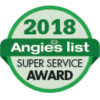
We spend a good majority of our time in our homes. In reality, the Environmental Protection Agency (EPA) has estimated being indoors accounts for 90% of our time. However, the EPA also says your indoor air can be three to five times dirtier than outdoors.
That’s due to the fact our houses are tightly sealed to enhance energy efficiency. While this is great for your energy expenses, it’s not so good if you’re a part of the 40% of the population with respiratory allergies.
When outdoor ventilation is restricted, pollutants such as dust and volatile organic compounds (VOCs) could get stuck. Consequently, these pollutants might worsen your allergies.
You can improve your indoor air quality with clean air and regular housework and vacuuming. But if you’re still struggling with symptoms while you’re at home, an air purifier may be able to provide relief.
While it can’t remove pollutants that have gotten trapped in your furnishings or carpeting, it may help clean the air traveling across your home.
And air purification has also been scientifically proven to help lessen some allergic symptoms, according to the American College of Allergy, Asthma and Immunology. It could also be useful if you or someone in your household has a lung condition, including emphysema or COPD.
There are two models, a portable air purifier or a whole-home air purifier. We’ll go over the advantages so you can learn what’s correct for your residence.
Whole-House Air Purifier vs. Portable Air Purifiers
A portable air purifier is for a lone room. A whole-house air purifier accompanies your heating and cooling unit to treat your entire house. Some types can clean on their own when your heating and cooling unit isn’t on.
What’s the Best Air Purifier for Allergies?
Look for a purifier with a High Efficiency Particulate Air (HEPA) filter. HEPA filters are placed in hospitals and offer the best filtration you can find, as they trap 99.97% of particles in the air.
HEPA filters are even more useful when combined with an ultraviolet (UV) germicidal light. This dynamic mixture can wipe out dust, dander, pollen and mold, all of which are common allergens. For the greatest in air purification, think over a system that also has a carbon-based filter to eliminate household vapors.
Avoid getting an air purifier that generates ozone, which is the main component in smog. The EPA warns ozone may aggravate respiratory troubles, even when emitted at minor settings.
The Allergy and Asthma Foundation of America has compiled a checklist of questions to ask when getting an air purifier.
- What can this purifier extract from the air? What doesn’t it remove?
- What’s its clean air delivery rate? (A bigger number means air will be purified more rapidly.)
- How frequently does the filter or UV bulb need to be changed]? Can I complete that without help?
- How much do replacement filters or bulbs cost?
How to Decrease Seasonal Allergy Symptoms
Want to receive the {top|most excellent|best] outcome from your new air purification equipment? The Mayo Clinic recommends doing other measures to limit your exposure to things that can trigger seasonal allergies.
- Stay indoors and keep windows and doors sealed when pollen counts are heightened.
- Have someone else mow the lawn or pull weeds, since these jobs can aggravate symptoms. If you must do these chores yourself, consider trying a pollen mask. You should also rinse off right away and put on clean clothes once you’re completed.
- Avoid drying laundry outside your home.
- Run the AC while indoors or while in the car. Consider using a high efficiency air filter in your home’s heating and cooling equipment.
- Even out your house’s humidity percentage with a whole-house dehumidifier.
- Hardwood, tile or linoleum are the ideal flooring materials for reducing indoor allergens. If your residence has carpet, install a HEPA filter on your vacuum cleaner.
Let Our Specialists Handle Your Indoor Air Quality Requirements
Prepared to take the next step with adding a whole-house air purifier? Give our experts a call at 763-535-2000 or contact us online to request an appointment. We’ll help you find the right equipment for your house and budget.



